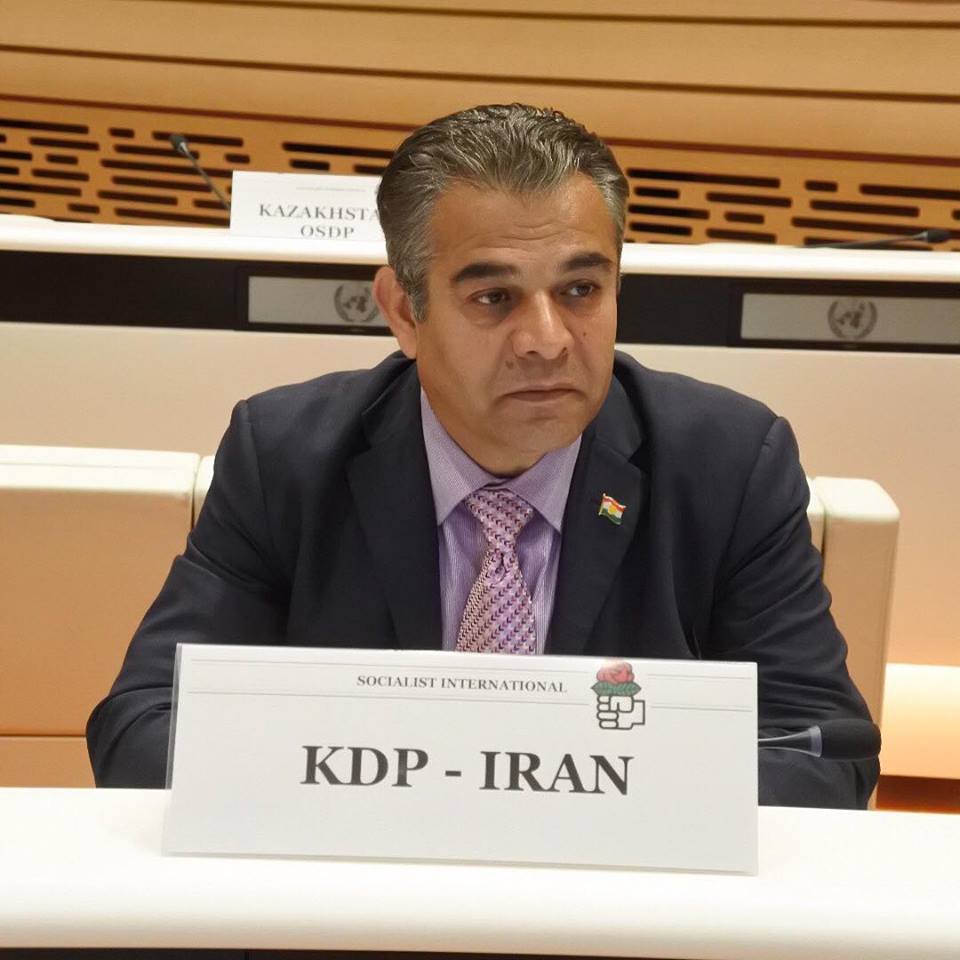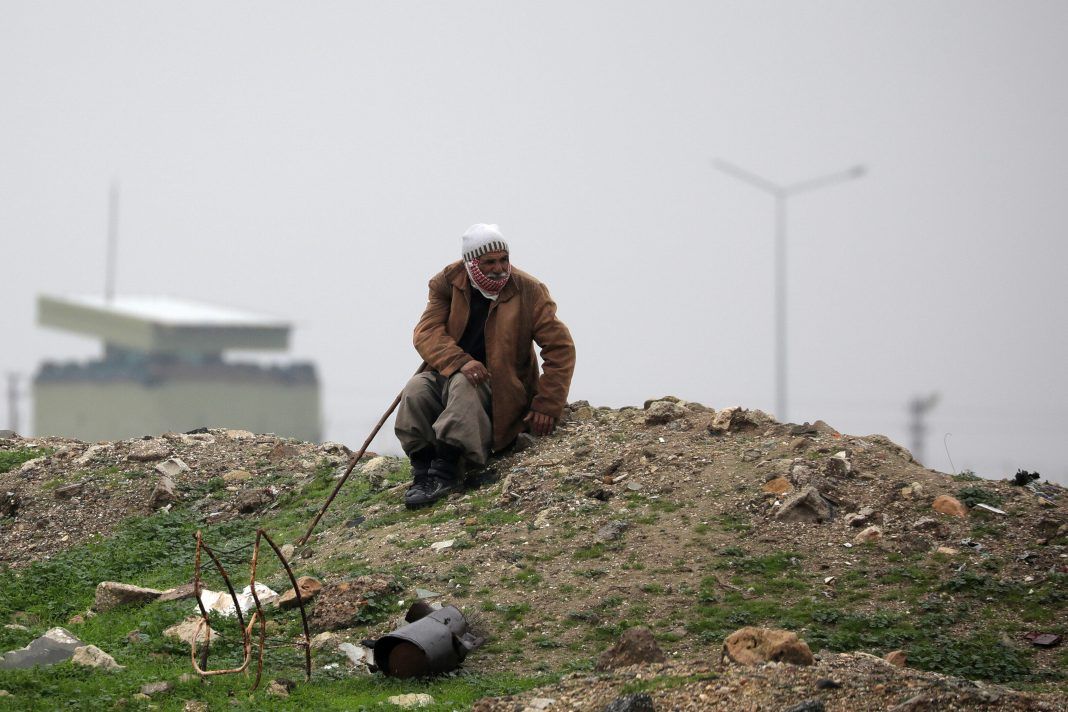The withdrawal of U.S. troops in Northern Syria has left Kurds in the region feeling betrayed once again by their long-time ally, the United States. Iran may now step in to fill the void, experts say.
Good short explainer on Kurdish history & independence. Also note that next year is the 100th anniversary of Sevres treaty in which we Allies esp the British promised the Kurds a referendum for Kurdish self determination (Churchill supported the Kurds)https://t.co/n7gVWwExyN pic.twitter.com/QrfboNNTCV
— Gray Connolly (@GrayConnolly) October 10, 2019
The region has been thrown into turmoil after Turkish forces invaded territory along the Turkey-Syria border. President Recep Tayyip Erdogan said the action was needed to carve out a “safe zone” for Syrian refugees living in Turkey, and to combat Kurdish fighters in the border area who want greater autonomy in the region.
The Turkish action came after U.S. President Donald Trump announced that the nearly 1,000 American troops based in the area would be redeployed to western Iraq to combat Islamic State militants.

Mouloud Swara, the official U.K. representative of the Kurdistan Democratic Party (KDP) and of the KDP-Iran, told Kayhan Life that this was not the first time the U.S. had walked away from the Kurds.
“The U.S. has abandoned us no less than eight times in recent history when we needed their help. But we feel that Iran is always there, and that is our primary concern,” Mr. Swara said.
He said his party would keep campaigning for federalism in Iranian Kurdistan so that Kurds could live independently inside the Islamic Republic.
The party has also held several meetings in the last few weeks with Western officials to address Iranian Kurds’ concerns about the crisis in northern Syria.
“We had a recent meeting in Germany, at the German Foreign Office in Berlin, in which we spoke at length about the situation facing Kurds in Syria and Iran, and it went very well. But our meeting in the U.S. was different,” Mr. Swara said.
“We were initially told that we would be meeting with U.S. officials in Washington and that the meeting had been organized by a think tank. We discovered that it was actually organized by the People’s Mojahedin Organization of Iran (MEK) and the location had been changed from Washington to New York. We decided not to attend this meeting,” Mr. Swara explained.
The MEK, an Iranian opposition movement once designated as a terrorist organization by the U.S., has gained influence in Washington, and it has high-ranking U.S. supporters — including Donald Trump’s personal lawyer and former New York City Mayor Rudy Giuliani, and John Bolton, Trump’s outgoing National Security Advisor.
[aesop_image img=”https://kayhanlife.com/wp-content/uploads/2019/10/2019-07-13T182436Z_377007289_RC13667BF250_RTRMADP_3_USA-IRAN-ALBANIA.jpg” panorama=”off” credit=”FILE PHOTO: Maryam Rajavi, the President-elect of the National Council of Resistance of Iran, speaks at an event in Ashraf-3 camp, which is a base for the People’s Mojahedin Organization of Iran (MEK) in Manza, Albania, July 13, 2019.REUTERS/Florion Goga” align=”center” lightbox=”off” captionsrc=”custom” captionposition=”left” revealfx=”off” overlay_revealfx=”off”]
The fear is that the absence of a Western military presence in the Kurdish areas of Syria could increase Iran’s influence in the Middle East.
“Colleagues of mine who are Iranian Kurds say their biggest concern is the fact that the Syrian Democratic Forces (SDF) have signed a deal with Syrian President Bashar Hafez al-Assad, which ultimately means Iranian influence in Rojava,” said Emile Ghessen, a former British Royal Marine and documentary maker who has filmed the experiences of volunteers fighting with the Peshmerga in Syria and Iraq.
Rojava became an autonomous region in northern Syria in 2012, and though not officially recognized as autonomous by any state or organization, it consists of a notable Kurdish population with self governing enclaves.
Watch: the evidence
Attack on Syrian Kurds in North Syria is fully coordinated between Russia, IRAN (Syria) & Turkey
In the meeting Russian & Iran backed commander saying: "Kurdish project in Syria is ( #Isreali & American)we have to destroy it "3 week before the Turkey attack pic.twitter.com/wmFy1xNmlS— Botin Kurdistani (@kurdistannews24) October 21, 2019
The deal agreed by the Kurdish-led SDF with President Assad allows the Syrian Arab Army (SAA) to secure the border, but leaves the political autonomy of the Kurdish administration unmonitored.
Fighting in the region erupted again on October 30, as the ceasefire between Syria’s Kurds and Turkish forces brokered by Russia and Turkey expired. On the same day, Turkish President Erdogan threatened to expand the safe zone, telling a parliamentary meeting that Turkey would give “a drastic response to any attack coming from outside of the safe zone [in northern Syria] and we will expand our safe zone area if needed.”
Kurds around the world have reacted to the conflict, with protests held in Canada, Berlin and London.
Rahim Rashidi, a Kurdish journalist who went viral on social media after being called “Mr. Kurd” by Donald Trump during a United Nations press conference, told Kayhan Life that the conflict in Syria “is a painful reminder of the Armenian genocide by Ottoman Turks during World War I, except this time the Turks are being helped by the U.S. and the Europeans, or more explicitly, NATO. If the West really wants to help the Kurds, it could compel Turkey to leave Syria, and support the Kurds in their quest for independence.”
[aesop_image img=”https://kayhanlife.com/wp-content/uploads/2019/11/2016-07-25T120000Z_1667668465_S1BETRQHHKAB_RTRMADP_3_TURKEY-KURDS.jpg” panorama=”off” credit=”REUTERS/Sertac Kayar” align=”center” lightbox=”off” captionsrc=”custom” captionposition=”left” revealfx=”off” overlay_revealfx=”off”]


